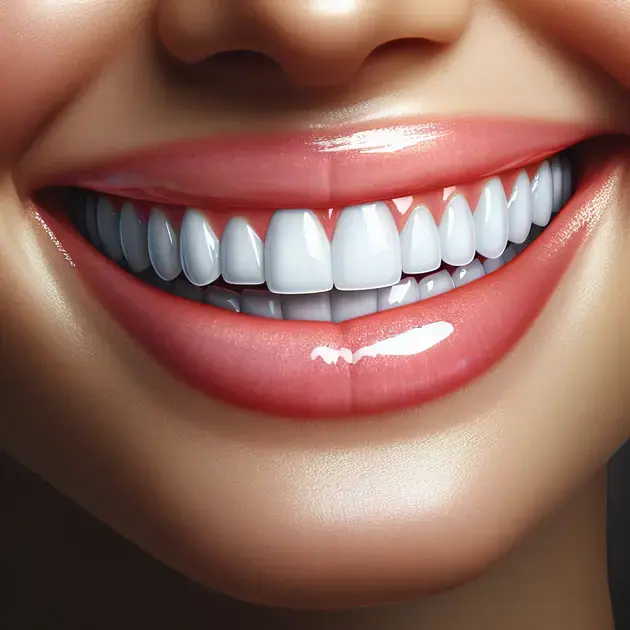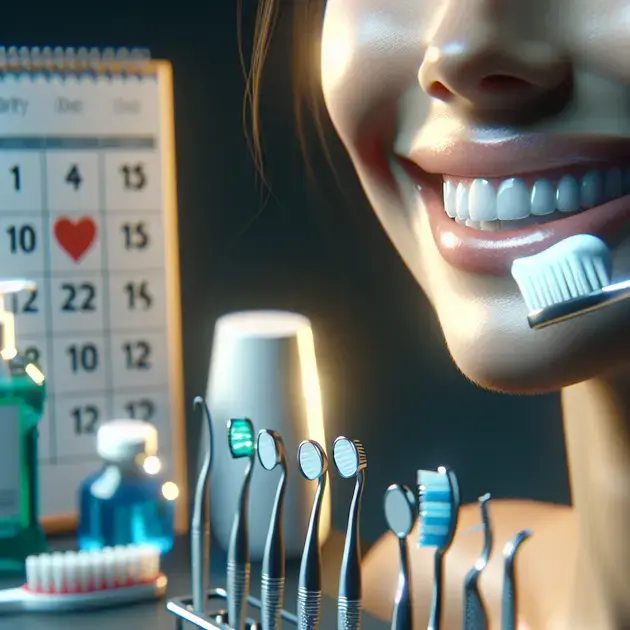Dental plaque, the silent enemy of oral health, is a biofilm that forms on the surface of teeth. This sticky film is comprised of bacteria, food particles, and saliva, and if not removed regularly through proper oral hygiene practices, it can lead to a host of dental issues.
From causing tooth decay and gum disease to bad breath and even heart problems, dental plaque is more than just a cosmetic nuisance. In fact, according to the American Dental Association, over 90% of adults have experienced dental cavities due to plaque buildup.

The Hidden Dangers of Dental Plaque
Dental plaque is a sticky film that forms on the teeth due to the accumulation of bacteria, saliva, and food particles. If not properly removed through regular brushing and flossing, plaque can harden into tartar, leading to various oral health issues. One of the hidden dangers of dental plaque is its role in causing tooth decay. The bacteria in plaque produce acids that attack the tooth enamel, eventually leading to cavities.
Another danger of dental plaque is its contribution to gum disease. When plaque builds up along the gumline, it can cause inflammation and infection, leading to conditions such as gingivitis and periodontitis. Untreated gum disease can result in tooth loss and even affect overall health, as the bacteria from the mouth can enter the bloodstream and contribute to systemic inflammation.
To prevent the hidden dangers of dental plaque, it is essential to practice good oral hygiene habits. This includes brushing your teeth at least twice a day, flossing daily, and scheduling regular dental cleanings. Using antimicrobial mouthwash can also help reduce the bacteria in the mouth and prevent plaque buildup.
For a thorough cleaning and removal of plaque, consider using an electric toothbrush with a pressure sensor and timer. One recommended app for maintaining oral health is the Colgate Connect app, which provides personalized tips and reminders for brushing and flossing.
By being proactive in your oral hygiene routine and staying informed about the dangers of dental plaque, you can maintain a healthy smile and prevent potential complications in the future.
Preventative Measures Against Dental Plaque
Preventing dental plaque buildup is crucial for maintaining good oral health and reducing the risk of associated complications. One of the most effective preventative measures against dental plaque is to brush your teeth thoroughly with a fluoride toothpaste at least twice a day. Brushing removes plaque from the surfaces of the teeth and helps prevent the buildup of tartar.
In addition to regular brushing, flossing daily is essential for removing plaque from between the teeth and along the gumline. Using dental floss or interdental brushes can help clean hard-to-reach areas and prevent the accumulation of plaque in these spaces. Another preventative measure is to limit sugary and starchy foods in your diet, as these can contribute to plaque formation.
For an added layer of protection against dental plaque, consider using an antiseptic mouthwash that can help kill bacteria in the mouth and reduce plaque buildup. Look for mouthwashes that are specifically formulated to combat plaque and gingivitis.
For personalized recommendations on preventative measures against dental plaque, you can consult with a dentist or dental hygienist. They can provide guidance on the best oral hygiene practices for your specific needs and recommend any additional treatments or products that may be beneficial.
By taking proactive steps to prevent dental plaque, you can maintain a healthy smile and avoid the potential complications associated with poor oral hygiene.
Understanding the Impact of Dental Plaque on Overall Health
While dental plaque primarily affects oral health, its impact can extend beyond the mouth and contribute to overall health issues. Research has shown that the bacteria present in dental plaque can enter the bloodstream through inflamed gums and contribute to systemic inflammation in the body.
This systemic inflammation has been linked to various health conditions, including cardiovascular disease, diabetes, and respiratory infections. By reducing the levels of bacteria in the mouth through proper oral hygiene practices, you can help lower the risk of developing these systemic health issues.
Regular dental cleanings and check-ups are not only important for maintaining oral health but also for monitoring and preventing potential systemic health issues associated with dental plaque. During a dental appointment, your dentist can assess the condition of your teeth and gums, remove any plaque or tartar buildup, and provide guidance on maintaining good oral hygiene.
Understanding the impact of dental plaque on overall health highlights the importance of taking care of your teeth and gums to protect not only your smile but also your general well-being. By prioritizing oral hygiene and seeking regular dental care, you can safeguard your oral and systemic health in the long run.

The Importance of Regular Dental Check-ups
Regular dental check-ups are essential for maintaining good oral health. By visiting your dentist regularly, you can prevent potential dental problems before they escalate into more serious issues. During a check-up, your dentist will examine your teeth and gums, looking for signs of decay, gum disease, or other oral health issues that may need attention.
These check-ups also allow your dentist to perform professional cleanings, removing plaque and tartar buildup that cannot be easily removed with regular brushing and flossing. Additionally, your dentist may take X-rays to detect any underlying issues that may not be visible during a visual examination.
To ensure optimal oral health, it is recommended to schedule dental check-ups at least twice a year. This frequency allows your dentist to monitor any changes in your oral health and address them promptly, helping you avoid more extensive and costly dental procedures down the line.
Regular dental check-ups not only contribute to a healthy smile but also play a crucial role in your overall well-being. Research has shown a correlation between oral health and systemic health, with poor oral health being linked to an increased risk of various health conditions, including heart disease and diabetes.
By prioritizing regular dental check-ups, you are investing in your long-term health and well-being. Remember, prevention is key when it comes to maintaining a healthy smile.
Effective Techniques for Removing Dental Plaque
Dental plaque is a sticky film of bacteria that forms on your teeth and can lead to tooth decay and gum disease if not properly removed. Fortunately, there are effective techniques for removing dental plaque and maintaining good oral hygiene.
Step-by-Step Guide:
1. Brush your teeth twice a day with a fluoride toothpaste to remove plaque and prevent its accumulation. Use a soft-bristled toothbrush and brush in gentle, circular motions to reach all surfaces of your teeth.
2. Floss daily to clean between your teeth and along the gumline, where plaque buildup is common. Flossing helps remove food particles and plaque that your toothbrush may not reach.
3. Rinse your mouth with an antimicrobial mouthwash to help kill bacteria and freshen your breath. Look for mouthwashes that are specifically designed to combat plaque and gingivitis.
4. Visit your dentist for regular cleanings to remove any hardened plaque, known as tartar, that cannot be removed through regular brushing and flossing. Professional cleanings are essential for maintaining optimal oral health.
5. Consider incorporating an interdental cleaner, such as a water flosser or interdental brush, into your oral hygiene routine to clean hard-to-reach areas between teeth.
Maintaining Healthy Oral Hygiene Practices
Healthy oral hygiene practices are key to preventing dental problems and maintaining a beautiful smile. By following a consistent oral care routine, you can keep your teeth and gums healthy for years to come.
Brushing your teeth at least twice a day and flossing daily are fundamental components of a proper oral hygiene routine. Proper brushing and flossing help remove plaque, bacteria, and food particles that can lead to tooth decay and gum disease.
In addition to regular brushing and flossing, it is important to eat a balanced diet and limit sugary and acidic foods and beverages that can contribute to tooth decay. Consuming plenty of water and eating foods rich in calcium and vitamin C can help promote strong teeth and healthy gums.
Regular dental check-ups are also essential for maintaining healthy oral hygiene. Your dentist can detect and address any oral health issues early on, preventing them from progressing into more serious conditions.
Remember, a healthy smile starts with good oral hygiene practices. By making oral care a priority in your daily routine, you can enjoy a lifetime of optimal oral health.
Conclusion
In conclusion, regular dental check-ups are crucial for maintaining optimal oral health and overall well-being. By visiting your dentist twice a year, you can prevent potential dental issues, receive professional cleanings, and address any oral health concerns promptly. These check-ups not only contribute to a healthy smile but also play a vital role in preventing systemic health conditions like heart disease and diabetes.
Furthermore, effective techniques for removing dental plaque, such as brushing with fluoride toothpaste, daily flossing, and using antimicrobial mouthwash, are essential for good oral hygiene. Incorporating these practices into your routine can help prevent tooth decay and gum disease, leading to strong teeth and healthy gums.
Maintaining healthy oral hygiene practices, including a balanced diet and regular dental visits, is key to preventing dental problems and ensuring a beautiful smile for years to come. By prioritizing oral care and making it a part of your daily routine, you are investing in your long-term oral health and well-being.